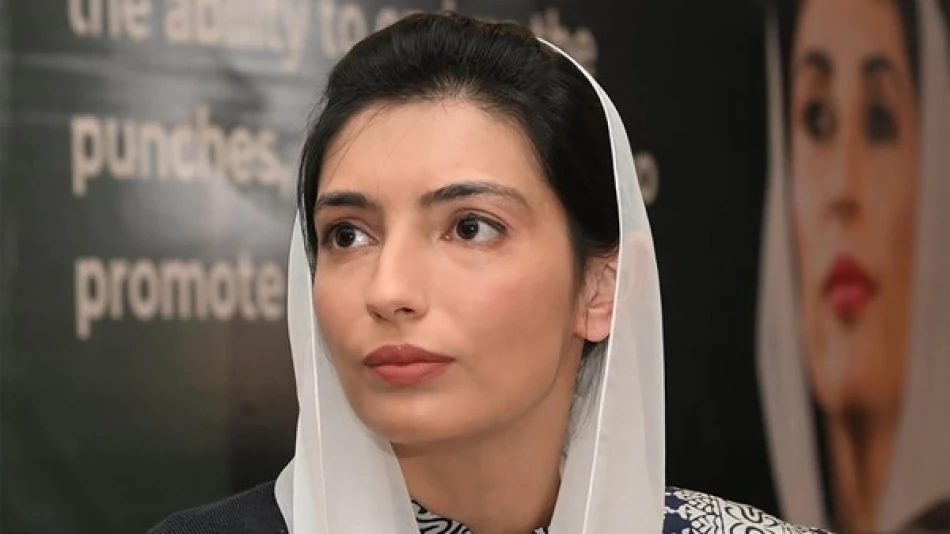
Empowered Emirati Women Inspire Pakistani First Lady and Women Worldwide
Pakistan's First Lady Celebrates UAE Women's Leadership as Regional Model for Female Empowerment
Pakistan's First Lady Asifa Bhutto Zardari has publicly praised Emirati women for their expanding leadership roles across government, business, science, and culture, highlighting the UAE's emergence as a regional benchmark for women's empowerment in the Middle East and South Asia.
Cross-Border Recognition Reflects Shifting Regional Dynamics
In a post on X (formerly Twitter) marking UAE Women's Day, Zardari commended Emirati women for "breaking barriers and assuming leadership positions," while specifically acknowledging the vision of Sheikha Fatima bint Mubarak, known as the "Mother of the Emirates" and president of the UAE General Women's Union.
This diplomatic praise carries weight beyond ceremonial courtesy. Pakistan's First Lady, herself a prominent political figure from the influential Bhutto dynasty, represents a country where women's rights remain contentious. Her public endorsement of the UAE model suggests growing recognition that female empowerment drives economic competitiveness.
UAE's Strategic Investment in Women's Leadership
Measurable Progress in Key Sectors
The UAE has systematically positioned women in leadership roles across critical sectors. Women now comprise 75% of the UAE's public sector workforce and hold senior positions in ministries including foreign affairs, youth development, and advanced technology. This isn't accidental—it reflects deliberate policy choices tied to the country's Vision 2071 economic diversification strategy.
Unlike neighboring countries where women's participation remains limited by cultural constraints, the UAE has leveraged female talent as a competitive advantage. Emirati women lead major financial institutions, head government innovation labs, and represent the country in international space programs.
Regional Influence and Soft Power
Pakistan's recognition highlights how the UAE's approach generates regional soft power. As countries across the Middle East and South Asia grapple with demographic transitions and economic pressures, the UAE model offers a pragmatic template that balances cultural sensitivity with modernization imperatives.
Implications for Regional Development
This cross-border acknowledgment reflects broader trends reshaping the region. Countries like Saudi Arabia have launched similar initiatives under Vision 2030, while Pakistan itself faces pressure to unlock female economic participation to address fiscal challenges.
The timing is significant. As regional economies pivot away from oil dependence and toward knowledge-based industries, countries that successfully integrate women into leadership positions gain measurable advantages in innovation, governance, and international competitiveness.
Zardari's statement signals that even traditionally conservative societies are recognizing women's empowerment not as a Western import, but as an economic necessity. The UAE's success provides political cover for leaders across the region to pursue similar reforms while maintaining cultural authenticity.
Most Viewed News

 Layla Al Mansoori
Layla Al Mansoori






